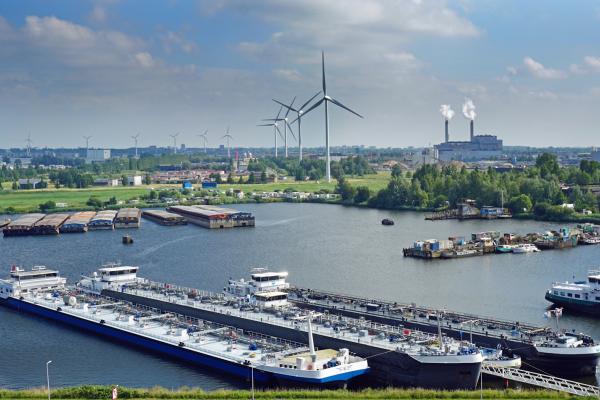
A Water resilience experiment conducted by the JRC set out to bridge the gap between policy and real-life situations. It questioned how we use collaboration in decision-making processes and explored possibilities to include more voices in order to approach water resilience in a holistic way. Beyond water resilience, this experiment offers valuable lessons for application in other policy areas.
Focusing on participation and design when tackling water challenges
Citizens, policymakers, and stakeholders across multiple governance levels participated in the experiment and together looked for ways to tackle water challenges. The experiment took into consideration the complex connections between water resilience and various human and ecological activities, from agriculture to health and energy. It examined organisational structures and divisions that shape water governance in Europe and looked for ways to better connect the actors and help them share knowledge.
Essential components for comprehensive policy design beyond water resilience
The experiment identified three essential components for inclusive policy making:
- framing the topic,
- understanding organisational culture, and
- applying local knowledge.
How issues are framed significantly influences the approach to solving them. Effective collaboration across governance levels, coupled with regional experiences, supports public engagement and ensures policies meet local needs.
Drawing from these insights, the EU Policy Lab found eight transformative actions relevant to water resilience:
- Coordinating actions: Organising participatory workshops has the potential to bridge differences among policymakers and promote proactive strategies.
- Involvement of local level: It is essential to collaborate with member state labs and organisations to benefit from local insights. These can help develop scalable business models, empowering communities and leveraging local authorities.
- Learning from citizens: The findings advocate for building on citizens’ and communities’ actions and taking into account their experiences. In this case this meant recognising water use as a part of daily life and focusing on health and wellness perspectives.
- Using behavioural insight: Understanding human behaviour can help overcome difficulties of policy implementation, address political reluctance or resistance to change.
- Participatory methods: The use of participatory methods, such as serious games and interactive workshops, can encourage stakeholders to engage with the issues on a practical level. Such methods both gather a wide array of insights and best practices and build a sense of shared ownership over the resulting strategies and policies.
These complement traditional and more technical tools such as impact assessments with new methods, integrating feedback swiftly into policymaking. The proposals target policymakers, water-related groups, and communities, fostering a shared sense of ownership over strategies.
Water scarcity will affect all of society, so will the solutions
As Europe braces for climate change impacts and increasing water scarcity, innovative and cross-sectoral approaches become crucial across policy domains. The Water Resilience Experiment highlights the importance of listening differently, collaborating creatively, and designing with people to build more resilient, adaptive, and impactful policies.
By expanding on this work, the EU Policy Lab aims to provide evidence and solutions for internal interventions and more holistic approaches at the Commission and beyond.
Background
At the European Commission’s Joint Research Centre, innovation is integrated into evidence-based advice, combining design, foresight, and behavioural insights. The EU Policy Lab serves as a collaborative space for exploring innovative approaches, ensuring policies are both evidence-based and adaptable. Behavioural insights contribute to all phases of the EU policy cycle, providing a human-centric perspective.
The European Water Resilience Strategy to be adopted this week will develop a comprehensive, multi-annual cross-sectoral plan with milestones in 2030 or 2040 to ensure Europe is water-resilient, addressing water scarcity and enhancing competitiveness through a circular economy approach.
Related links
Details
- Publication date
- 3 June 2025
- Author
- Joint Research Centre
- JRC portfolios 2025-27





